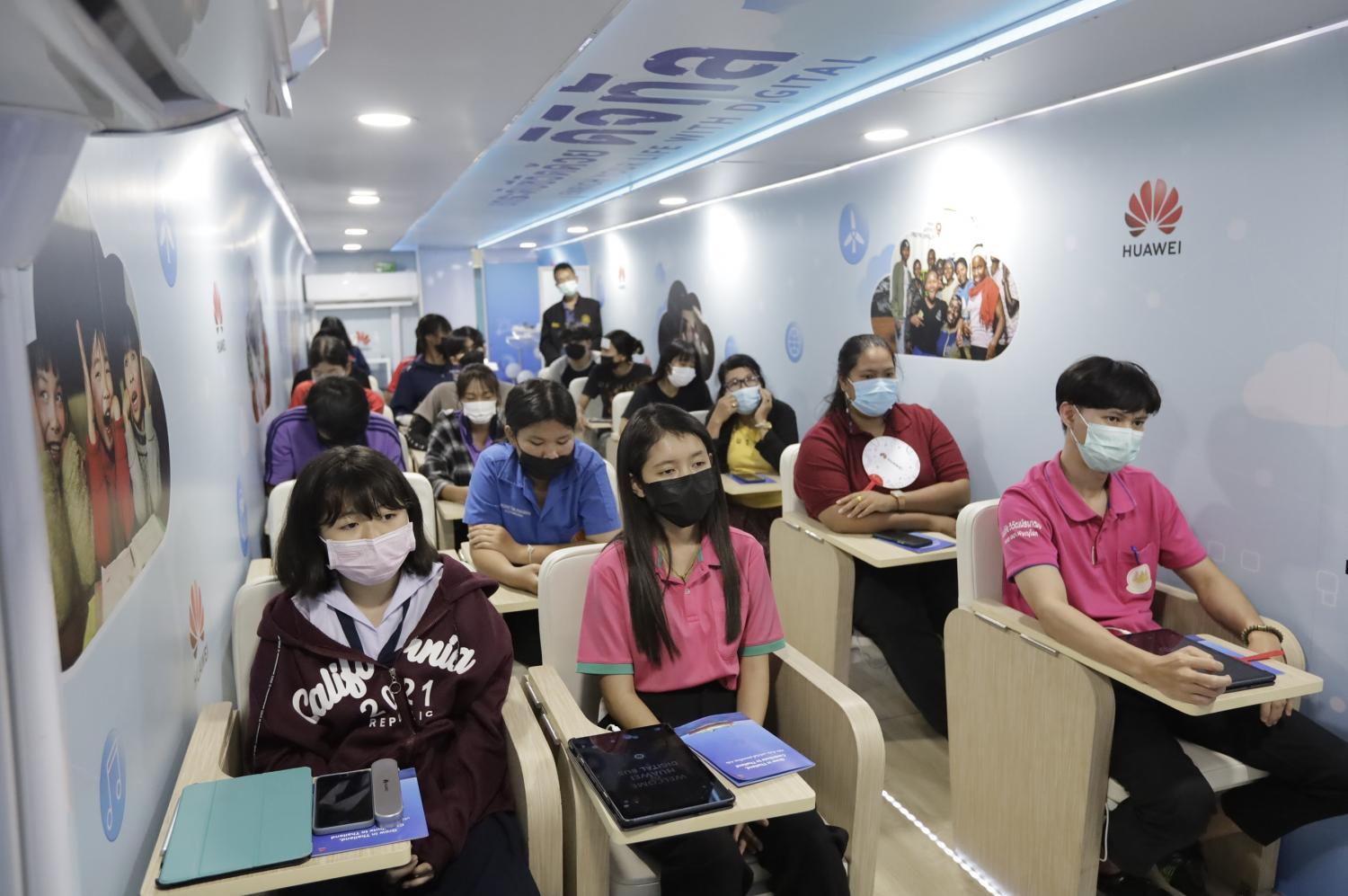
Global tech powerhouse Huawei Technologies is concentrating on digital infrastructure, sustainable development and a strong ecosystem as part of its strategies to deepen cooperation with Asia-Pacific nations, including Thailand, in boosting its digital power.
According to ICT market research firm McKinsey, the pandemic accelerated the digital economy by seven years globally and by 10 years in Asia-Pacific.
"We want to be a key contributor to the digital economy in Asia-Pacific," Simon Lin, president of Huawei Asia-Pacific, told the Bangkok Post in an exclusive interview. "We need to build digital intelligence and green Asia-Pacific together."
He said Huawei invested heavily in R&D and innovation solutions for the ICT industry over the past two years. In 2021 the company allotted 22.4% of its revenue to R&D.
To deepen its cooperation with countries in the region, the company highlighted three core aspects.
The first lies in digital infrastructure, including communication equipment, data centres and cloud platforms.
"We need to digitalise traditional industries and create value for customers," Mr Lin said.
"Industries need digital infrastructure that offers a more intelligent network to provide more digital services to society, not only being connected, but also improving quality of life."
He said the company also provides automated artificial intelligence functions for network operation to make the network more effective at supporting new digital services and business models.
"This is our vision -- to use technology to change the world," Mr Lin said.
The second strategy involves sustainable development, which is widely supported by countries many around the world.
Huawei Digital Power integrates digital and power electronics technologies and enables energy digitalisation for a greener future. One example is working with partners to instal smart photovoltaic rooftops on 1,200 stores in Thailand, he said.
The third strategy involves building an open and healthy ecosystem by using innovative platforms to support industry digitalisation.
In Thailand, Huawei and the Digital Economy Promotion Agency have jointly developed the Thailand 5G Ecosystem Innovation Centre as an incubation and digital innovation development accelerator.
The country also has the 5G Alliance to serve 5G ecosystem development.
"We need to create value for our customers," Mr Lin said.
"When the Asia-Pacific market is booming, we will see a very fruitful result."
DIGITAL ECONOMY DRIVE
He praised Thailand for its plan to make the digital economy constitute 30% of the country's GDP by 2027, saying this could turn the nation into the Asean leader for digital economy development.
"Huawei aims to be a major contributor to the Thai digital economy by working together with carriers to provide digital infrastructure," said Mr Lin.
He said the 5G network covers 78% of the Thai population, and this can be raised to 98% in five years.
Huawei can support carriers developing the fibre-optical network in Thailand to improve home internet connection coverage, said Mr Lin.
The company can also provide network security technology through data centres, cloud services and WiFi 6.
He said Huawei can provide a platform for global independent software vendors and app developers, enabling them to enter the Thai market.

5G LANDSCAPE
According to Mr Lin, there are 700 million users of 5G services and 2 million 5G cell sites globally.
When user penetration reaches 16%, it will drive positive business results for carriers. If 5G traffic reaches 20% of total network traffic, telecom carriers would reach a break-even point for 5G business, he said.
In Thailand, with continued support of 5G policies, investment and the ecosystem, Huawei expects 5G traffic to reach 20% of total network traffic by the end of this year, with 5G user penetration of 20%.
By the end of 2025, the 5G network is expected to cover 92% of the Thai population, with 5G user penetration and 5G traffic forecast to exceed 50%.
"We will see more exciting innovation from mobile operators with augmented reality and virtual reality features, cloud gaming and rich content, which are driving customers to migrate to 5G," said Mr Lin.
DIGITAL TALENT-BUILDING
He said all of Asia-Pacific, including Thailand, is concentrating on building digital skills for people.
Last year Huawei signed a memorandum of understanding with the Asean Foundation to train 500,000 digital workers over five years with an investment fund of US$50 million.
"Towards this goal, we need long-term and systematic efforts. Our talent initiatives focus on three main areas, covering leadership, skills and knowledge," said Mr Lin.
"Through Asean Academies in Malaysia, Indonesia and Thailand, we have trained over 17,000 local officials. For the upskilling and reskilling of ICT practitioners, we have trained almost 120,000 people."
For young talent, the company has several programmes to promote knowledge transfer, including the Seeds for the Future project, which this year saw 120 students from 16 Asia-Pacific countries gather in Thailand to learn ICT technologies.
"We believe the foundation of all talent initiatives is value creation for society," he said. "In the fourth quarter, Huawei's Digital Bus training programme will go to six more provinces in Thailand to train 1,000 rural doctors and volunteers."







